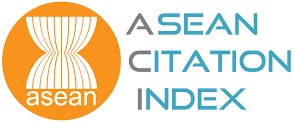Energy-aware scheduling optimization in hybrid flow shops using artificial bee colony algorithm
DOI:
https://doi.org/10.15282/jmes.18.3.2024.6.0803Keywords:
Production scheduling, Hybrid flow shop, Artificial bee colony, Energy optimizationAbstract
Hybrid flow shop scheduling (HFS) involves optimizing production processes, where different manufacturing stages have varying capacities, combining parallel machine and flow shop scheduling to improve efficiency and reduce production time. Incorporating energy considerations into HFS problems has emerged as a critical area of research, driven by the growing emphasis on environmental sustainability and cost-effectiveness in manufacturing operations. This study addresses the hybrid flow shop scheduling with energy consideration (HFSE) problem, aiming to simultaneously optimize makespan and total energy consumption, two conflicting objectives. An Artificial Bee Colony (ABC) algorithm is proposed as an effective solution methodology for tackling the HFSE problem. Through an extensive computational experiment involving a well-known benchmark suite, the ABC algorithm demonstrated remarkable performance, consistently outperforming several popular metaheuristic algorithms, including Genetic Algorithms, Particle Swarm Optimization, Memetic Algorithms, and Whale Optimization Algorithm in 75% of the problems. The proposed approach's ability to efficiently explore the search space and balance the trade-offs between makespan minimization and energy consumption reduction contributed to its superior results. The ABC algorithm reduces makespan and energy consumption by 2.95% and 3.43%, respectively. This finding suggests potential benefits for manufacturing operations, including decreased production time and lower operational costs.
References
M. Khatami, A. Salehipour, T. C. E. Cheng, “Flow-shop scheduling with exact delays to minimize makespan,” Computers & Industrial Engineering, vol. 183, p. 109456, 2023.
X. An, G. Si, T. Xia, D. Wang, E. Pan, L. Xi, “An energy-efficient collaborative strategy of maintenance planning and production scheduling for serial-parallel systems under time-of-use tariffs,” Applied Energy, vol. 336, p. 120794, 2023.
Y. J. Wang, G. G. Wang, F. M. Tian, D. W. Gong, W. Pedrycz, “Solving energy-efficient fuzzy hybrid flow-shop scheduling problem at a variable machine speed using an extended NSGA-II,” Engineering Applications of Artificial Intelligence, vol. 121, p. 105977, 2023.
I. Ribas, R. Leisten, J. M. Framiñan, “Review and classification of hybrid flow shop scheduling problems from a production system and a solutions procedure perspective,” Computers & Operations Research, vol. 37, no. 8, pp. 1439–1454, 2010.
J. Trojanowska, J. Machado, M. L. R. Varela, S. Carmo-Silva, N. M. L. Costa, “Comparative simulation study of production scheduling in the hybrid and the parallel flow,” Management and Production Engineering Review, vol. 1, no. 2, pp. 10 – 20, 2017.
Y. Kuang, X. Wu, Z. Chen, W. Li, “A two-stage cross-neighborhood search algorithm bridging different solution representation spaces for solving the hybrid flow shop scheduling problem,” Swarm and Evolutionary Computation, vol. 84, p. 101455, 2024.
S. Wang, H. Zhang, “A metaheuristic for flowshop scheduling with batch processing machines in textile manufacturing,” Applied Soft Computing, vol. 145, p. 110594, 2023.
J. S. Neufeld, S. Schulz, U. Buscher, “A systematic review of multiobjective hybrid flow shop scheduling,” European Journal of Operational Research, vol. 309, no. 1, pp. 1–23, 2023.
L. Meng, C. Zhang, X. Shao, Y. Ren, C. Ren, “Mathematical modelling and optimisation of energy-conscious hybrid flow shop scheduling problem with unrelated parallel machines,” International Journal of Production Research, vol. 57, no. 4, pp. 1119–1145, 2019.
J. Behnamian, S. M. T. Fatemi Ghomi, “Hybrid flowshop scheduling with machine and resource-dependent processing times,” Applied Mathematical Modelling, vol. 35, no. 3, pp. 1107–1123, 2011.
M. F. F. Ab. Rashid, A. N. Mohd Rose, N. M. Z. Nik Mohamed, “Hybrid flow shop scheduling with energy consumption in machine shop using moth flame optimization,” in Recent Trends in Mechatronics Towards Industry 4.0, pp. 77–86, 2020.
S. Schulz, “A genetic algorithm to solve the hybrid flow shop scheduling problem with subcontracting options and energy cost consideration,” Advances in Intelligent Systems and Computing, vol. 854, pp. 263–273, 2019.
H. Lu, F. Qiao, “An efficient adaptive genetic algorithm for energy saving in the hybrid flow shop scheduling with batch production at last stage,” Expert Systems, vol. 39, no. 2, p. e12678, 2022.
S. L. Jiang, L. Zhang, “Energy-oriented scheduling for hybrid flow shop with limited buffers through efficient multiobjective optimization,” IEEE Access, vol. 7, pp. 34477–34487, 2019.
X. Lian, Z. Zheng, C. Wang, X. Gao, “An energy-efficient hybrid flow shop scheduling problem in steelmaking plants,” Computers & Industrial Engineering, vol. 162, p. 107683, 2021.
W. Zhang, C. Li, M. Gen, W. Yang, G. Zhang, “A multiobjective memetic algorithm with particle swarm optimization and Q-learning-based local search for energy-efficient distributed heterogeneous hybrid flow-shop scheduling problem,” Expert Systems with Applications, vol. 237, p. 121570, 2024.
H. Luo, B. Du, G. Q. Huang, H. Chen, X. Li, “Hybrid flow shop scheduling considering machine electricity consumption cost,” International Journal of Production Economics, vol. 146, no. 2, pp. 423–439, 2013.
K. Geng, C. Ye, “A memetic algorithm for energy-efficient distributed re-entrant hybrid flow shop scheduling problem,” Journal of Intelligent & Fuzzy Systems, vol. 41, pp. 3951–3971, 2021.
J. Cai, D. Lei, “A cooperated shuffled frog-leaping algorithm for distributed energy-efficient hybrid flow shop scheduling with fuzzy processing time,” Complex & Intelligent Systems, vol. 7, no. 5, pp. 2235–2253, 2021.
Z. Wang, L. Shen, X. Li, L. Gao, “An improved multiobjective firefly algorithm for energy-efficient hybrid flowshop rescheduling problem,” Journal of Cleaner Production, vol. 385, p. 135738, 2023.
D. Karaboga, B. Gorkemli, “A combinatorial Artificial Bee Colony algorithm for traveling salesman problem,” in International Symposium on Innovations in Intelligent Systems and Applications, pp. 50–53, 2011.
D. Karaboga, “An idea based on honey bee swarm for numerical optimization,” Technical Report-TR06, Erciyes University, Kayseri, Turkey, 2005.
B. Akay, D. Karaboga, “Artificial bee colony algorithm for large-scale problems and engineering design optimization,” Journal of Intelligent Manufacturing, vol. 23, no. 4, pp. 1001–1014, 2012.
J. Carlier, E. Neron, “An exact method for solving the multi-processor flow-shop,” RAIRO-Operation Research, vol. 34, no. 1, pp. 1–25, 2000.
J. Wang, Y. Liu, S. Rao, X. Zhou, J. Hu, “A novel self-adaptive multi-strategy artificial bee colony algorithm for coverage optimization in wireless sensor networks,” Ad Hoc Networks, vol. 150, p. 103284, 2023.
M. Li, C. T. Chang, Z. Liu, “A discrete artificial bee colony algorithm and its application in flexible flow shop scheduling with assembly and machine deterioration effect,” Applied Soft Computing, vol. 159, p. 111593, 2024.
X. Zhou, X. Zhang, W. Gao, H. Wang, Y. Ma, “Adaptive multi-population artificial bee colony algorithm based on fitness landscape analysis,” Applied Soft Computing, vol. 164, p. 111952, 2024.
Downloads
Published
Issue
Section
License
Copyright (c) 2024 The Author(s)

This work is licensed under a Creative Commons Attribution-NonCommercial 4.0 International License.






